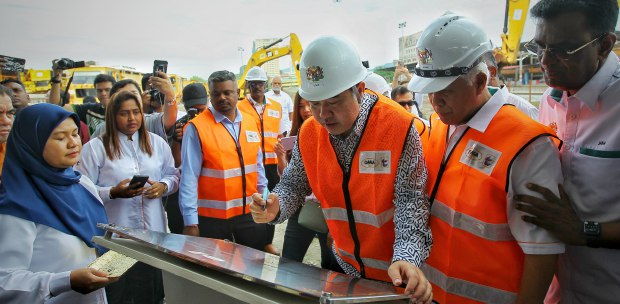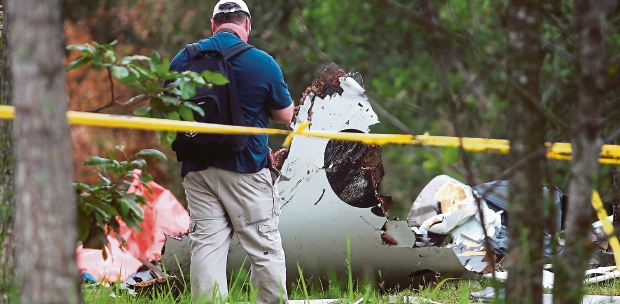KUALA LUMPUR: It will be good if Malaysian aviation authorities and telecommunication companies (telcos) stay clear from using similar 5G frequencies for airline safety, aviation experts said.
They said while it was too early to conclude that the 5G technology would impair flight operations as many countries including Malaysia were at an infant stage of the ultra speed broadband rollout, problems emerged when 5G frequencies (or wavelength) were close to the avionics used in the landing systems, beacons and aircraft instruments.
US telcos Verizon and AT&T are at loggerheads with the United States Federal Aviation Administration (FAA) over fears that the 5G service will impair airline safety.
This comes amid threats from the FAA to ground or divert flights at a time when the travel industry is already playing catch-up from recent weather and Covid-related flight disruptions.
The telcos have agreed to a two-week delay rolling out their new 5G technology.
Industry experts said the 5G deployment, which uses frequencies in a radio spectrum called the C-band, can be close to those used by radio altimeters, an essential piece of safety equipment in aircraft.
Bloomberg Intelligence senior analyst for aerospace, defence and airlines George T. Ferguson told the New Straits Times the current challenge on the 5G deployment could be around airports where it might interfere with radio altimeter signals.
"In a critical situation such as a low visibility landing, if the radio altimeter signals are corrupted, the result could be catastrophic. It seems that some older radio altimeters signals are close enough for interference," he told the New Straits Times.
However, Ferguson said radio altimeters could retrofit in time with retirements to solve the problem.
"In the meantime, 5G signals can be turned down around airports to reduce the risk of interference, and across the country, a broader 5G rollout will be unaffected," he added.
Winair AS founder and aviation consultant Hans Jørgen Elnæs said in the US, the 5G frequencies were closer to those used by airports and aircraft.
"This may cause interference, and this is currently under investigation in the US," he told the NST.
Hans added that different wavelengths between 5G and airport/aircraft systems might solve the safety issues concerning flight operations.
Frost & Sullivan aerospace and defence consultant Shantanu Gangakhedkar said there were various technical aspects involved on whether 5G may or may not affect flight operations. This included operating frequency of the 5G band.
"For instance, in the case of Europe, it has not been a major issue yet because the operating frequency of 5G there in is not as close as that of US to the operating frequency of radio altimeters on an aircraft," he told the NST.
Shantanu said Malaysia's aviation authorities, such as the Civil Aviation Authority of Malaysia (CAAM), should evaluate and assess the potential impact on the aviation sector with the 5G deployment in the country.
"The appropriate assessment and risk analysis should be done and conducted before 5G deployment," he said.
However, Shantanu said there might still be some regulations and guidelines which the industry players would have to adhere to safely deploy 5G technology to avoid any possible negative impacts on the airline industry.
"A further importance should be given to the location of 5G transmitters, with the possible creation of exclusion zones near airports. In the long-term, there might be some changes to the hardware, especially the radar altimeters onboard the aircraft to future proof their operation," he added.
Former Malaysia Airlines flight operations director Captain Mohd Kamil Abu Bakar said the local aviation authority was still studying how the signals (radar altimeters) would affect aircraft's navigation system.
"Regardless, the authority will come up with the appropriate measures to ensure that aviation safety is not jeopardised. It is still too early to form any conclusion," he added.






